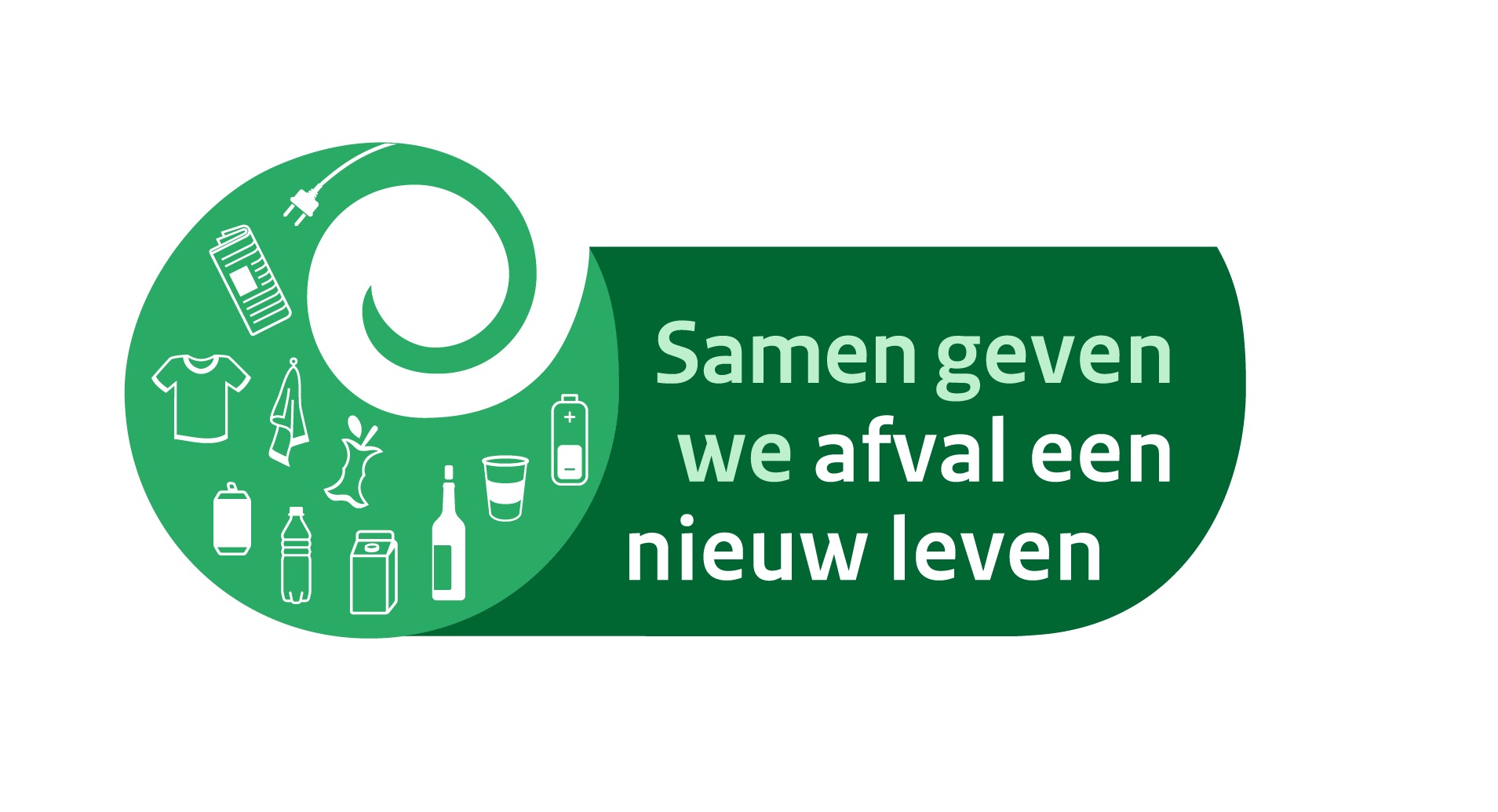Do you ever doubt which bin a product or material belongs in? The separation guide on this page will help!
Residents of flats, upstairs flats and houses without three types of resource containers have been allowed to dispose of plastic packaging, metal packaging and drink cartons (pmd) in a neighbourhood residual waste collection container since the introduction of the environmental card. This waste is collected separately and later sorted by machines. As a result, we can recycle more and need to incinerate less residual waste. Residents of low-rise houses with a pmd container do separate pmd at home.
Always the separation guide at hand
With the handy Waardlanden app, you always have the separation guide to hand. You can download the Waardlanden app onto your smartphone yourself. This way you will always have all information on waste and raw materials to hand. You will also find your personal waste calendar in the app. And you can quickly and easily file reports, make a bulky waste appointment and order bags. Download the app here!
Do you prefer a paper separation guide?
You can view, download and possibly print the waste separation guide. You can hang it up in a handy place at home. That way you can quickly see what belongs where.
- Download the handy waste separation guide in Dutch
- Download the handy waste sorting guide in Arabic
- Download the handy waste sorting guide in English
- Download the handy waste sorting guide in Ukrainian
- Download the handy waste sorting guide in Polish
- Download the handy waste sorting guide in Romanian
- Download the handy waste sorting guide in Spanish
- Download the handy waste sorting guide in Turkish
Separating waste is commonplace for most households these days. But why do we separate our waste and what is the best way to separate raw materials?
Why is separating waste important?
By separating your waste properly, you will keep less residual waste. This reduces waste and is better for the environment. Valuable raw materials such as PMD, paper, organic waste and textiles are preserved and given a new life in new products. So we need to take fewer raw materials from the earth and waste less.
In addition, good separation saves on costs. Disposing of residual waste costs money, whereas you can hand in most raw materials free of charge. Separated waste is also cheaper to process than residual waste. Good separation therefore helps the environment and keeps the costs of waste collection and processing manageable.
Does separated waste actually stay separated?
Yes. Everything you hand in separately stays separated. Our trucks collect one type of material per trip. At the waste disposal site, the different flows are collected separately and processed separately. So old glass becomes new glass, old paper becomes new paper and VGF waste becomes compost or biogas.
You sometimes hear that "everything goes back into one pile anyway". This is not true. Only when there is a lot of residual waste between a raw material, the material cannot be recycled properly. Then, unfortunately, it still has to be incinerated, and valuable raw materials are lost. This is why proper separation is so important.
Everything in the right container. For the reuse of materials as raw materials, it is important that no contamination is added. Then the quality of the material remains as good as possible and it can be recycled. For this reason, many materials are collected separately, separated from residual waste. The main rule for separation at home is: clean and/or dry.
- Only vegetable, fruit and other food waste and garden waste may be put in the GFT container.
- Only glass bottles and jars are allowed in the glass container (packaging glass).
- Only clean and dry paper and cardboard may be put in the paper container.
- Only (empty) plastic and metal (cans) packaging and beverage cartons are allowed in the pmd.
- Only textiles are allowed in the textile container.
This sounds logical, but a lot of contamination is still found in the containers for these material streams. Plastic in the waste paper or GFT, for example, is very bad for the environment. By separating neatly, the sorting and recycling process runs efficiently. Little pollution then needs to be removed from the material stream before the material can be used again as a secondary raw material in a production process. And sorting costs remain limited, so separate collection also remains financially worthwhile. Because VGF, PMD and paper contaminated with, for instance, plastic or residual waste cannot be recycled for reuse. As a resident, you then pay for processing as waste but do not get any yield from the raw materials. Those who do not separate or separate badly are therefore driving up costs for themselves and their neighbours.
By separating waste properly and cleanly, we together - residents, municipalities and Waardlanden - keep waste processing costs manageable. And we work together towards a beautiful, valuable living environment.











